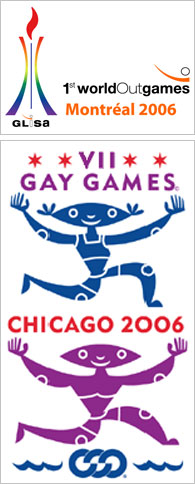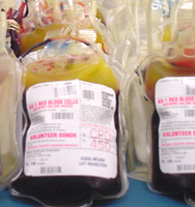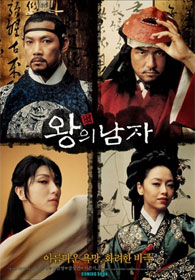World's largest gay sports events to be held back to back in Chicago and Montreal
The quadrennial Gay Games - originally to be held in Montreal, Canada - will be held in Chicago, USA from July 15-22 after disagreements in 2003 with local organisers and the Federation of the Gay Games.

The 28-year-old Gay Games is said to be plagued by a decade of financial difficulties and most recently at the 2002 Sydney Games.
The Gay Games will see more than 12,000 athletes competing in 30 sports while the 1st World Outgames to be held from July 26-Aug 5 has also signed on a similar number of athletes competing in 35 sports including Dragon Boat racing.
Organisers say athletes from 109 nations are registered for the Montreal games while participants in Chicago will come from 70 countries.
British pop superstar Andy Bell of Erasure and American-Korean comedian, gay rights champion Margaret Cho and DJ Frankie Knuckles would perform at the July 15 Opening Ceremony for the 2006 Gay Games at the Chicago Bears' Soldier Field while the World Outgames opening ceremonies held at the Olympic Stadium will feature Martina Navratilova, k.d. lang and a Cirque du Soleil troupe, among others.
Prior to the Outgames, Montreal organisers are staging the International Conference on LGBT Human Rights, which is being promoted as the largest gay rights conference ever, from July 26-29. Two thousand delegates are expected to hammer out a "Declaration of Montreal," which will be presented at the games' opening ceremonies and, later, to the United Nations.
The next Gay Games is slated for 2010 in Cologne and the next Outgames is scheduled for 2009 in Copenhagen.
Related sites:
Gaygameschicago.org
Montreal2006.org
Gay blood ban case to go to tribunal
In a world-first, the ban on gay men donating blood will be reviewed by a body that has the power to strike the ban down in Australia - putting the case at the cutting-edge of a global movement to reform blood-donation guidelines.

US blood-donation regulations in effect since the 1980s prohibit any gay or bisexual man who has had sex with another man since 1977 from donating blood.
Twenty-two year old Michael Cain, of Launceston, Tasmania, hopes the tribunal will overturn the blood bank's policy, which he claims is discriminatory, unnecessary and could cost lives.
"A new donor-screening policy based on the safety of donors' sexual practices rather than the gender of their sexual partners would make the blood supply safer," Cain, who believes that a tribunal hearing will give the matter a rigorous and impartial review, said.
Cain, electrical assembly-line worker and ambulance volunteer, said he was turned away when he responded to a call for donors in October 2004 when he revealed that he had had sex with a man in the previous 12 months.
He said he had been in a monogamous, eight-month relationship at the time and practised safe sex.
His complaint that the blood bank's policy was discriminatory has been referred to the Anti-Discrimination Tribunal. The Australian Red Cross Blood Service will be made to justify its policy before the State's Anti-Discrimination Tribunal.
"The feeling at the time should not have to be felt by anyone, particularly when they are trying to give the gift of saving people's lives," Cain said.
"Everyone should be able to help save lives if they are healthy, willing and able."
Gay groups say the Red Cross policy barring sexually active gay men from donating blood is discriminatory because it automatically assumes gay men are an HIV risk.
Tasmanian Gay and Lesbian Rights Group spokesman Rodney Croome said, "Now we know that AIDS is not simply a gay disease; it's a disease anyone can catch."
He noted that the rate of HIV infection through blood transfusions had dropped in European countries - including Spain and Switzerland which allow gay men to donate blood - where blood-bank screening looked at a donor's sexual practices rather than their partner's gender.
"It's really time for the Red Cross to change its policy and focus on whether donors have safe or unsafe sex rather than the gender of the person they have sex with."
Croome said the Anti-Discrimination Commissioner's decision to refer Cain's case to the tribunal put Tasmania at the cutting-edge of a global movement to reform blood-donation guidelines.
"This is the first time anywhere that the gay blood ban has gone on trial," he said.
"The Tasmanian tribunal's hearings will be watched carefully by governments and health experts the world over."
Tribunal hearings are expected to begin later this year with the Hobart Community Legal Service to assist Cain in preparing his case.
US blood-donation regulations in effect since the 1980s prohibit any gay or bisexual man who has had sex with another man since 1977 from donating blood. At all blood collection facilities in the US and elsewhere in the world including Singapore and Hong Kong, all potential male donors are asked if they have had sex with another male. Anyone answering in the affirmative to this question will be banned for life from donating blood.
Gay-themed S.Korean blockbuster banned in Chinese cinemas
South Korea's biggest movie at the box office, about a tyrannical king and his two court jesters, has been banned from Chinese theatres because of its gay themes, a South Korean movie executive told the media.
"The movie King and the Clown could not pass the deliberation process in China because of the homosexual code and sexually explicit language in the movie," reported Reuters quoting an official with South Korean entertainment company CJ in Beijing.
The company however did receive permission from Chinese authorities to distribute the movie in China through DVD sales.
The movie, which does not contain any sex scenes, became a mainstream hit in South Korea and has taken in more than US$85 million and sold about 12 million tickets in a country with a population of around 48 million.
The most explicit part of the movie is when the king shares longing looks with one effeminate clown as they put on a puppet show together.
Ang Lee's Brokeback Mountain who won its acclaimed Taiwanese director an Oscar was not screened in the country as the film importer decided not to import the film. Observers believe it is almost certainly due to its theme of homosexuality.
Read Fridae's review of King and the Clown here.

